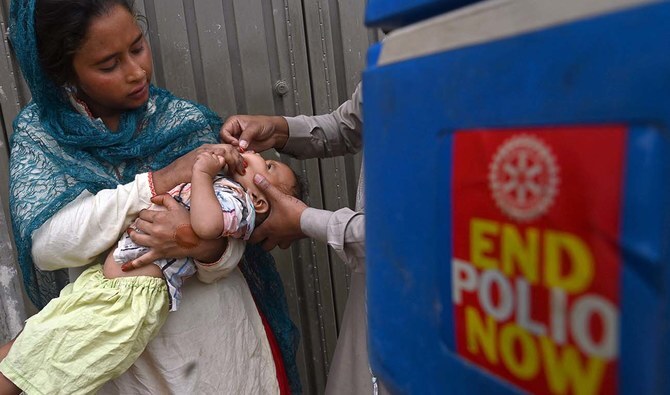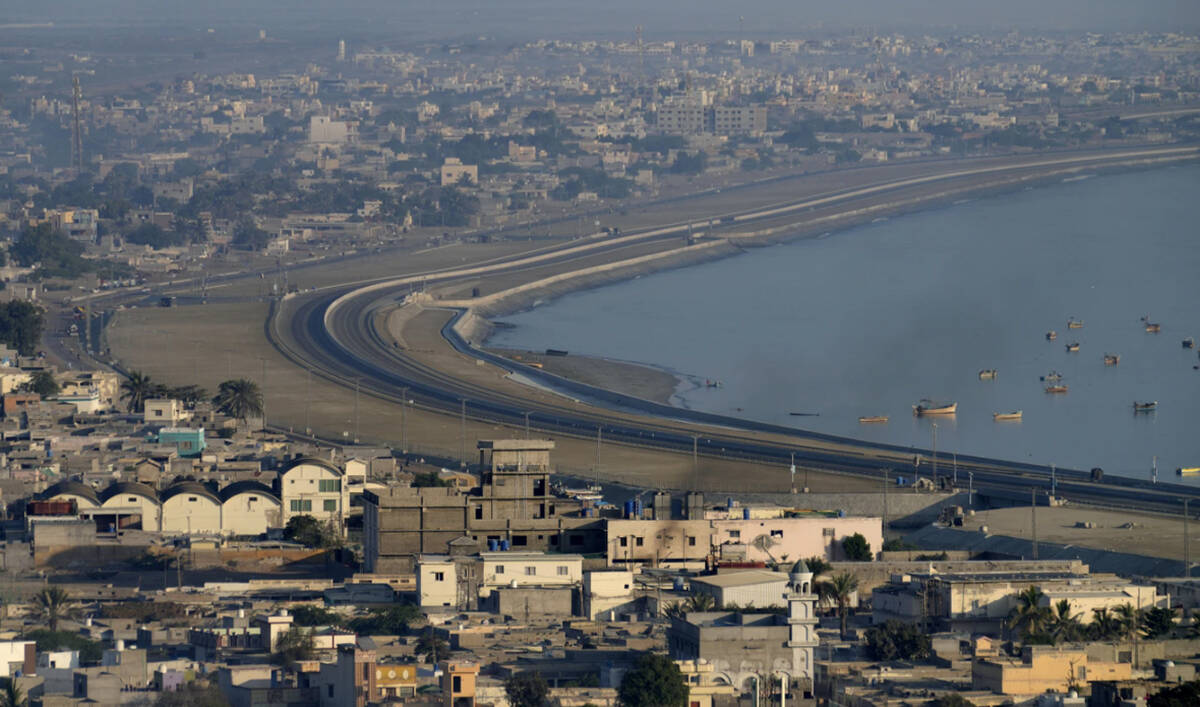ISLAMABAD: Pakistani Prime Minister Shehbaz Sharif on Wednesday met a delegation of the Polio Oversight Board in Islamabad and thanked the King Salman and Bill & Melinda Gates foundations, among others, in their global efforts for polio eradication.
Pakistan, along with neighboring Afghanistan, remains the last polio-endemic country in the world. The nation’s polio eradication campaign has hit serious problems with a spike in reported cases this year that has prompted officials to review their approach to stopping the crippling disease.
Poliovirus, which can cause crippling paralysis particularly in young children, is incurable and remains a threat to human health as long as it has not been eradicated. Immunization campaigns have succeeded in most countries and have come close in Pakistan, but persistent problems remain.
“The Prime Minister thanked the King Salman Foundation, Bill & Melinda Gates Foundation, Rotary Foundation, UNICEF and CDC, which are partners with the Government of Pakistan in the polio eradication campaign,” Sharif’s office said in a statement after the meeting.
“The role of all these organizations reflects the global efforts in the polio eradication campaign.”
This year, 50 cases have been reported in Pakistan: 24 from Balochistan province, 13 from Sindh, 10 from KP and one each from Punjab and Islamabad.
In the early 1990s, Pakistan reported around 20,000 cases annually but in 2018 the number dropped to eight cases. Six cases were reported in 2023 and only one in 2021.
Pakistan’s polio eradication program began in 1994, and the number of cases has declined dramatically since then. But efforts to eradicate the virus have for years been undermined by vaccine misinformation and opposition from some religious hard-liners, who say immunization is a foreign ploy to sterilize Muslim children or a cover for Western spies. Militant groups also frequently attack and kill members of polio vaccine teams.
In July 2019, a vaccination drive in Khyber Pakhtunkhwa was thwarted after mass panic was created by rumors that children were fainting or vomiting after being immunized.
Public health studies in Pakistan have shown that maternal illiteracy and low parental knowledge about vaccines, together with poverty and rural residency, are also factors that commonly influence whether parents vaccinate their children against polio.
Pakistan’s chief health officer this month said an estimated 500,000 children had missed polio vaccinations during a recent countrywide inoculation drive due to vaccine refusals.

















